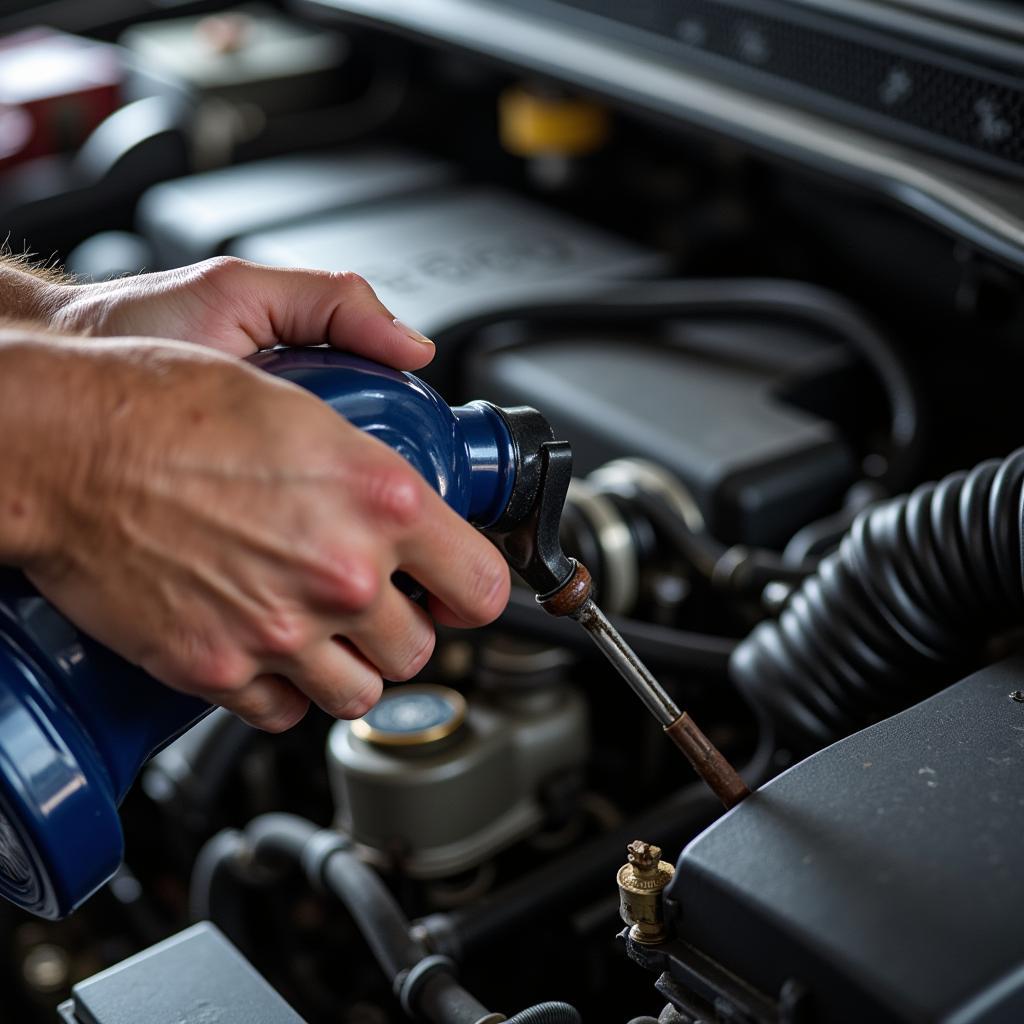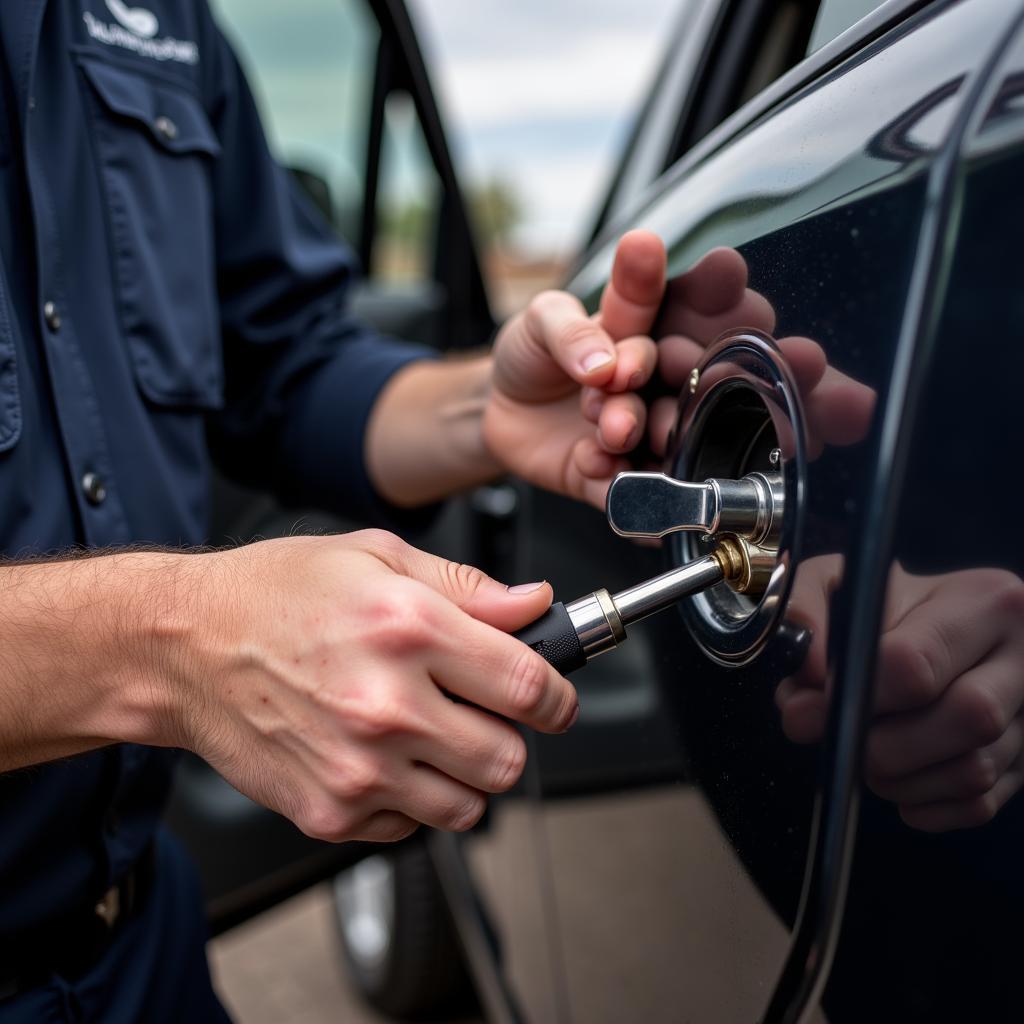What is Service Maintenance for a Car?
Car service maintenance is more than just an oil change; it’s the routine care and upkeep that keeps your vehicle running smoothly, safely, and reliably for years to come. It involves a series of inspections, adjustments, and replacements of various components, ensuring they operate at peak performance and reducing the risk of unexpected breakdowns.
Why is Car Service Maintenance Important?
Regular service maintenance is crucial for several reasons:
- Safety: Well-maintained vehicles are safer vehicles. Regular checks on brakes, tires, lights, and other critical systems can prevent accidents and keep you safe on the road.
- Reliability: Consistent maintenance minimizes the chances of unexpected breakdowns and costly repairs.
- Longevity: By addressing minor issues before they escalate, you extend the lifespan of your vehicle and avoid major problems down the line.
- Resale Value: A well-documented service history adds value to your car when it’s time to sell or trade it in.
What Does Car Service Maintenance Include?
Car service maintenance encompasses a wide range of tasks, often categorized by mileage intervals. Here’s a general overview:
Routine Maintenance:
- Oil and Filter Change: This is the most frequent service, typically every 3,000-5,000 miles, depending on driving conditions and oil type.
- Tire Rotation and Pressure Check: Rotating tires every 5,000-7,000 miles ensures even wear and extends tire life. Checking tire pressure regularly optimizes fuel efficiency and handling.
- Brake Inspection: Brakes are vital for safety, and regular inspections check for wear and tear on pads, rotors, and fluid levels.
- Fluid Top-Offs: Engine coolant, brake fluid, power steering fluid, and windshield washer fluid levels should be checked and topped off as needed.
 Mechanic changing car engine oil
Mechanic changing car engine oil
Scheduled Maintenance:
This involves more in-depth inspections and services at specific mileage intervals, often outlined in your vehicle’s owner’s manual. Common scheduled maintenance includes:
- Air Filter Replacement: A clogged air filter restricts airflow to the engine, impacting performance and fuel economy.
- Spark Plug Replacement: Worn spark plugs can cause misfires, reducing engine power and fuel efficiency.
- Timing Belt/Chain Inspection: The timing belt or chain synchronizes engine components, and a failure can result in catastrophic engine damage.
- Coolant Flush: Fresh coolant prevents corrosion and overheating, ensuring optimal engine temperature.
- Transmission Fluid Change: Regular transmission fluid changes ensure smooth gear shifts and extend transmission life.
Other Essential Services:
Beyond routine and scheduled maintenance, other services contribute to your car’s overall health and performance:
- Battery Check: Batteries have a limited lifespan, and regular checks can identify a weak battery before it leaves you stranded.
- Headlight and Taillight Check: Properly functioning lights are crucial for visibility and safety, especially at night.
- Windshield Wiper Replacement: Worn wiper blades reduce visibility and can be a safety hazard during rain or snow.
- Wheel Alignment: Misaligned wheels can cause uneven tire wear and affect handling.
Finding a Reliable Car Service Provider
Entrusting your car to a qualified mechanic is essential for proper service maintenance. Look for a reputable mechanic or service center with:
- ASE Certification: ASE-certified technicians have demonstrated knowledge and expertise in automotive repair.
- Positive Customer Reviews: Online reviews and testimonials can provide insights into the quality of service and customer satisfaction.
- Transparent Pricing: Reputable shops provide upfront pricing and explain all recommended services.
Conclusion
Regular car service maintenance is not an option but a necessity for ensuring the safety, reliability, and longevity of your vehicle. By following the manufacturer’s recommended service schedule and addressing issues promptly, you can enjoy peace of mind on the road, knowing your car is in top condition.
FAQs
1. How often should I get my oil changed?
Most manufacturers recommend an oil change every 3,000-5,000 miles or every 3-6 months, whichever comes first.
2. Is it necessary to follow the maintenance schedule in my owner’s manual?
Yes, following the manufacturer’s recommended maintenance schedule ensures your vehicle receives the proper service at the appropriate intervals, maximizing its lifespan and performance.
3. How can I find a trustworthy mechanic?
Ask for recommendations from friends or family, check online reviews, and look for certifications like ASE to ensure you choose a qualified and trustworthy mechanic.
4. What are some signs that my car needs service?
Common warning signs include unusual noises, warning lights on the dashboard, fluid leaks, vibrations, or changes in vehicle performance.
5. Can I perform car service maintenance myself?
While some routine tasks like checking fluids and tire pressure can be done at home, it’s best to leave more complex services to qualified mechanics.
Need Help with Car Service Maintenance?
Contact us today for expert advice and reliable service. Our team of certified technicians is here to answer your questions and keep your vehicle running smoothly. Reach us via WhatsApp: +1(641)206-8880, or Email: [email protected]. We offer 24/7 customer support.

